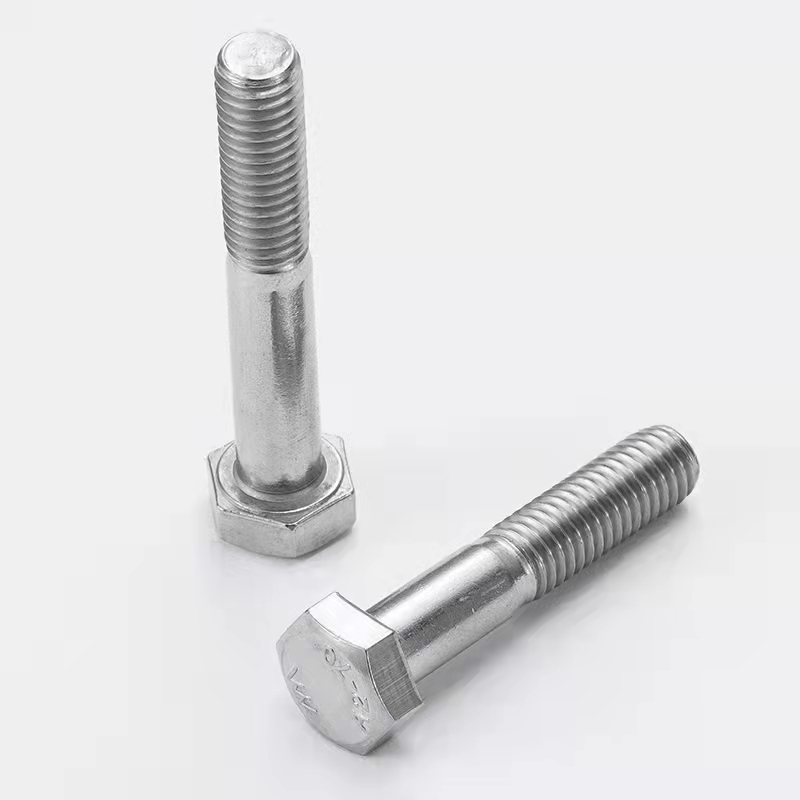Understanding Tension Control Bolts: A Key to Structural Integrity and Safety
2024-08-10
In the realm of construction and engineering, ensuring the integrity and safety of structures is paramount. One critical component that plays a vital role in this regard is the tension control bolt. These specialized fasteners are designed to provide precise and reliable tightening, ensuring that structural connections are secure and capable of withstanding the stresses they encounter. In this blog, we will explore what tension control bolts are, their benefits, and how they contribute to the safety and durability of various structures.
What is a Tension Control Bolt?
A tension control bolt is a high-strength fastener used primarily in steel construction to ensure accurate and reliable bolt tensioning. Unlike conventional bolts, tension control bolts are equipped with a unique design that allows for precise control over the tension applied to the bolt during installation. This is achieved through a specialized mechanism that allows the bolt to be tightened to a predetermined level, ensuring consistency and accuracy in the connection.
Key Features of Tension Control Bolts
1. Integrated Tensioning Mechanism
- Built-in Technology: Tension control bolts feature an integrated mechanism that allows for accurate tension control during installation. This mechanism typically involves a shear-off collar or a torque-indicating feature that provides visual or mechanical feedback when the desired tension is achieved.
2. High-Strength Material
- Durable Construction: Made from high-strength steel or alloy materials, tension control bolts are designed to withstand significant loads and stresses. This ensures that structural connections remain secure and stable under demanding conditions.
3. Precise Installation
- Consistent Tension: The tension control mechanism ensures that each bolt is tightened to the exact specifications required, providing uniform tension across all connections. This consistency is crucial for maintaining the structural integrity of the building or infrastructure.
4. Ease of Use
- Simplified Process: Tension control bolts simplify the installation process by eliminating the need for manual torque measurement. The integrated mechanism automatically indicates when the correct tension is achieved, streamlining the installation process and reducing the potential for human error.
Benefits of Tension Control Bolts
1. Enhanced Structural Integrity
- Reliable Connections: Tension control bolts ensure that bolts are tightened to the correct tension, resulting in strong and reliable connections between structural elements. This enhances the overall stability and durability of the structure.
- Uniform Load Distribution: By providing consistent tension across all bolts, tension control bolts help distribute loads evenly, reducing the risk of localized stress points and potential structural failures.
2. Improved Safety
- Reduced Risk of Failure: Properly tensioned bolts are less likely to loosen or fail over time, reducing the risk of structural collapse or other safety issues. This is particularly important in high-stress applications such as bridges, buildings, and industrial structures.
- Accurate Installation: The built-in tensioning mechanism helps ensure that bolts are installed to precise specifications, minimizing the likelihood of errors and ensuring that safety standards are met.
3. Time and Cost Efficiency
- Faster Installation: The ease of use and elimination of manual torque measurement streamline the installation process, reducing labor time and associated costs.
- Lower Maintenance: Properly tensioned bolts are less likely to require frequent adjustments or replacements, resulting in lower maintenance costs over the lifespan of the structure.
4. Versatility
- Wide Range of Applications: Tension control bolts are suitable for a variety of applications, including steel construction, bridge building, and industrial machinery. Their versatility makes them a valuable component in many different structural and engineering projects.
Applications of Tension Control Bolts
1. Steel Construction
- Building Frames: Used to connect steel columns, beams, and other structural elements in building frames. The precision and reliability of tension control bolts ensure that these connections can support the weight and stresses of the structure.
- Bridges: Essential for connecting steel components in bridge construction, where accurate tensioning is critical for structural stability and load distribution.
2. Industrial Machinery
- Equipment Assembly: Employed in the assembly of heavy machinery and equipment, where reliable and consistent bolting is necessary to ensure proper operation and safety.
- Structural Supports: Used in industrial settings to secure structural supports and components, maintaining the integrity of machinery and equipment.
3. Infrastructure Projects
- Towers and Masts: Utilized in the construction of towers, masts, and other tall structures, where precise bolting is essential for stability and load-bearing capacity.
- Transport Systems: Applied in the assembly of transportation infrastructure, such as railways and highways, where accurate bolting ensures the safety and durability of the system.
Choosing the Right Tension Control Bolt
1. Determine Load Requirements
- Bolt Strength: Select tension control bolts with the appropriate strength and load-bearing capacity for your specific application. Consider factors such as the size and type of the structure, as well as the anticipated loads.
2. Verify Specifications
- Tension Control Mechanism: Ensure that the tension control bolt meets the required specifications for your project. Verify that the integrated mechanism provides accurate and reliable tensioning.
3. Consider Environmental Factors
- Corrosion Resistance: Choose bolts with suitable coatings or treatments to protect against corrosion, especially in outdoor or harsh environments.
- Temperature Tolerance: Ensure that the bolts can withstand the temperature conditions of your application, particularly in extreme environments.
4. Consult with Experts
- Professional Advice: Work with engineers or construction professionals to determine the best type and specifications of tension control bolts for your project. Their expertise can help ensure that you select the most appropriate fasteners for your needs.
Conclusion
Tension control bolts are a critical component in modern construction and engineering, providing precise and reliable tensioning for structural connections. By ensuring accurate installation and enhancing structural integrity, these specialized fasteners play a vital role in maintaining the safety, stability, and durability of various structures.
Whether you're working on a steel construction project, assembling industrial machinery, or building infrastructure, incorporating tension control bolts into your design can significantly improve the quality and performance of your work. Embrace the benefits of these advanced fasteners and ensure that your projects are completed with the highest standards of safety and reliability.



